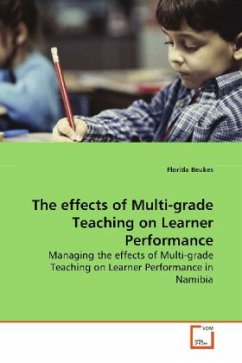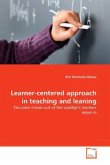Multi-grade classes were created in Namibia to give
children living in isolated areas access to a school
located in or near a village and to obtain higher
returns from the school system. Although authors
generally agree that greater demands are placed on
teachers in multi-grade classes, as opposed to mono-
grade teaching, there was no agreement about whether
this affected the quality of teaching.
Most researchers and practitioners agree that
successful strategies for multi-grade teaching
depended on adequate provisioning of learning
materials to support individual and group-based
learning. Curriculum, learning materials, teacher
education and assessment are necessary components of
an integrated strategy for teaching and learning in
multi-grade settings. Implementation of a single
strategy is unlikely to lead to significant
improvements in the effectiveness of teaching and
learning in multi-grade settings. Surrounding these
strategies is the need for national policies (for
curriculum, materials, teacher education and
assessment) that recognise, legitimatise and support
learners and teachers in multi-grade settings.
children living in isolated areas access to a school
located in or near a village and to obtain higher
returns from the school system. Although authors
generally agree that greater demands are placed on
teachers in multi-grade classes, as opposed to mono-
grade teaching, there was no agreement about whether
this affected the quality of teaching.
Most researchers and practitioners agree that
successful strategies for multi-grade teaching
depended on adequate provisioning of learning
materials to support individual and group-based
learning. Curriculum, learning materials, teacher
education and assessment are necessary components of
an integrated strategy for teaching and learning in
multi-grade settings. Implementation of a single
strategy is unlikely to lead to significant
improvements in the effectiveness of teaching and
learning in multi-grade settings. Surrounding these
strategies is the need for national policies (for
curriculum, materials, teacher education and
assessment) that recognise, legitimatise and support
learners and teachers in multi-grade settings.








